Brodsky was born there in 1940, and the film opens with the post-WWII return of his father, a military photographer, from China, complete with exotic presents from the East – a sort of magic box of colour that’s a fitting image for A Room and a Half itself. Because what Khrzhanovsky and his co-writer Yury Arabov (best known elsewhere as the long-term script collaborator of another St Petersburger, arthouse director Alexander Sokurov) create is a magic box of memory, in which each new (re)discovery triggers, frequently through the magic of the director’s animation, new episodes. That’s how memory “speaks”.
Nominally watching over this is the solitary figure of Brodsky in age (Grigory Dityakovsky, with a striking physical resemblance to the poet in later years), alone on a Fellini-esque ocean liner sailing home (though perhaps, we wonder, to that other city of canals, Venice, where Brodsky is actually buried). Famously, Brodsky never did return to his double-city home after his expulsion from the USSR in 1972, although the decade before his death in 1996 would have presented every opportunity. The reasons were various – his parents were already dead (never allowed out of the Soviet Union to visit him, only letters and telephone calls, as we find memorably in A Room and a Half, allowed them any communication), the unwillingness to be “invited” back by some official organization, and most of all from his conviction that “A man moves only in one direction. And only from.”
Khrzhanovsky responds as a visual poet to the poignancy of the memory-objects that the poet-exile has grown away from. He could have been taking a cue from the lines Brodsky himself wrote of another poet-exile, Dante, but which read no less as autobiography:
There are places where lips touched lips for the first time ever,
or pen pressed paper with real fervor.
There are arcades, colonnades, iron idols that blur your lens.
There the streetcar’s multitudes, jostling, dense,
speak in the tongue of a man who’s departed thence.
Thus, the wide-eyed child Brodsky walks through the visual marvels of the city’s streets after the war’s destructions with his father (Sergei Yursky). With his mother (Alisa Freyndlikh), we see the wonder of the empty room in a communal apartment that would serve as the parents’ home until their death and, its crowded space divided chaotically by wardrobes and cupboards (becoming the “room and a half” of the title, we assume), the site of the poet’s first tentative loves and lines. Typically, that sequence morphs into animation and a history of the building itself, and its pre-revolutionary culture, itself destroyed by the Bolsheviks. Stalin’s presence features strongly, both figuratively and in unexpected animation forms; so do the cats that the poet always loved deeply (pictured below).
 There’s the poet’s adolescence in the hip, black-and-white 1950s (played in these scenes by Artem Smola), then growing poetic renown, and briefly the first 1963 trial that saw him exiled to the country. Such were the poet’s formative years, and little follows from around the time of his actual expulsion, or the years of exile in America, except for the telephone calls that remind us that his parents are growing old (performances from the veterans Yursky and Freyndlikh are masterful throughout), that life continues in the communal apartment space now so far away. At least, until the poet’s “return” home, when we see him as an old man with them again, outside time, in that familiar room - that magic space of the past, of youth, and of the imagination - that then itself finally vanishes, elegiacally, into emptiness.
There’s the poet’s adolescence in the hip, black-and-white 1950s (played in these scenes by Artem Smola), then growing poetic renown, and briefly the first 1963 trial that saw him exiled to the country. Such were the poet’s formative years, and little follows from around the time of his actual expulsion, or the years of exile in America, except for the telephone calls that remind us that his parents are growing old (performances from the veterans Yursky and Freyndlikh are masterful throughout), that life continues in the communal apartment space now so far away. At least, until the poet’s “return” home, when we see him as an old man with them again, outside time, in that familiar room - that magic space of the past, of youth, and of the imagination - that then itself finally vanishes, elegiacally, into emptiness.
Played at pianissimo, it’s the emotional finale to a film in which Khrzhanovsky excels at the quiet notes, backed up by Arabov’s script contribution, as well as recordings of Brodsky reciting his own work, and a wonderfully chosen musical score. Khrzhanovsky’s earlier work included remarkable shorter adaptations of the work of another great Russian poet, Alexander Pushkin. Here, at close on 70, he’s created a full-length feature that will stand as one of the most evocative mood pieces likely to hit screens this year.
Watch the trailer

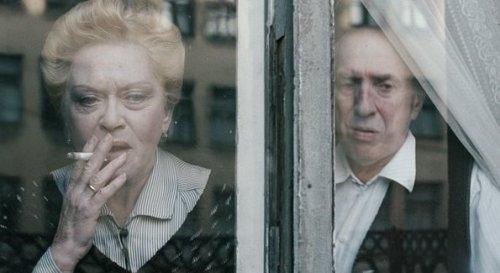
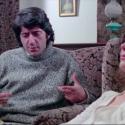
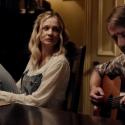
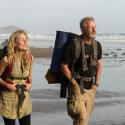
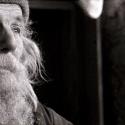
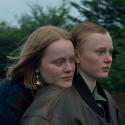
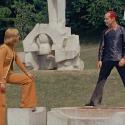
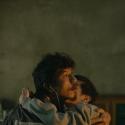
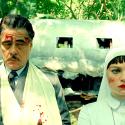

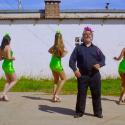

Add comment